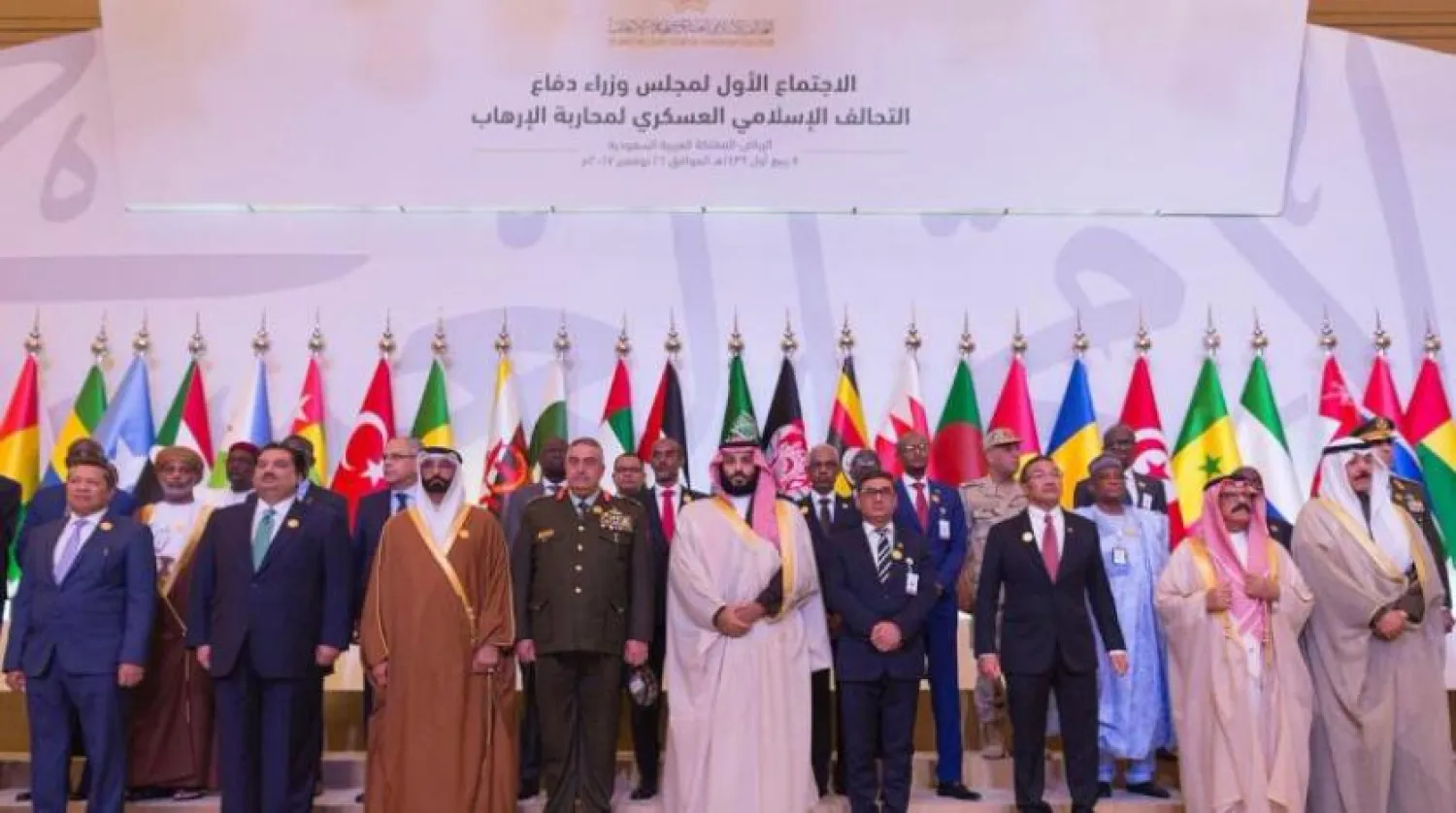Saudi Arabia's Crown Prince Mohammed bin Salman bin Abdulaziz Al Saud, Deputy Premier and Minister of Defense opened on Sunday the inaugural meeting of the Islamic Military Counter Terrorism Coalition (IMCTC) Ministers of Defense Council under the slogan "Allied Against Terrorism'' with participation of the ministers of Defense of the Islamic State's Coalition and international delegations.
The meeting marks the official launch of the IMCTC which will discuss the fight against the financing of terrorism and the identification of future mechanisms and frameworks that will guide the efforts of Islamic countries to eliminate terrorism, and unifying efforts to maintain international peace and security.
The Crown Prince said in his inauguration speech that the biggest threat of terrorism is the distortion it has imposed on Islam.
The prince also highlighted that today more than 40 Islamic countries strongly reaffirm their commitment to cooperate in the fight against terrorism.
"IMCTC members have gathered in Riyadh to pledge to do all that we can until terrorism is uprooted and is erased from the face of the Earth" the Crown Prince said.
He also sent his condolences to the brothers in Egypt for the attack in Sinai.
IMCTC has established the Counter Terrorism Center as its operational arm. The Center’s mission is to build up the member country’s Counter Terrorism capacity, exchange global best practice on specific IMCTC initiatives and create coordinated efforts across the four IMCTC domains; ideology, communications, counter terrorist financing, and military.
Two years ago in December 2015, the Kingdom of Saudi Arabia announced the formation of the Islamic Military Counter Terrorism Coalition (IMCTC) to form a unified Pan-Islamic front against terrorism and to reinforce solidarity and collaboration among coalition member countries to present a unified front against terrorist organizations trying to tarnish the name of Islam.









